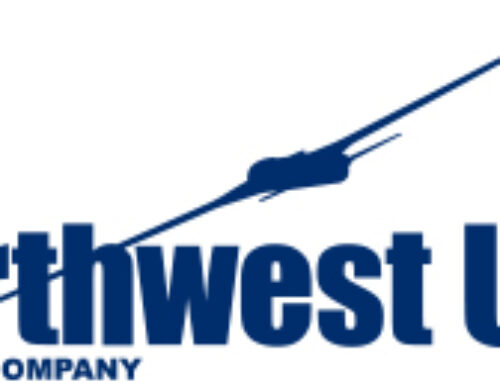Tuesday January 22nd, marked the start of the 2019 Oregon Legislative session. So far, there have been over 1,500 bills that have been introduced. There are many more yet to be introduced that are expected to come throughout the rest of the session. Here are some of the broader categories that have been expressed in the proposed bills so far:
- Gross Receipts Tax (GRT)
Portland has approved a citywide gross receipts tax on large businesses as of last November. Now that this has been implemented in Oregon’s largest city, this could give legislators an advantage to attempt to push this statewide.
- Business Activities Tax (BAT)
This type of tax is one deemed as an alternative to the GRT, and has recognition from the Oregon Business Plan. This type of tax doesn’t involve concerns of pyramiding (being applied multiple times in the supply chain) like the GRT does.
- Corporate Tax Rates
If neither of the previous two bills pass with 60 percent in both chambers, the Legislature could look towards keeping the current structure it has and increasing the corporate tax rate.
- Small-Business Taxes
This has been a focus of those looking to raise the revenue in legislature for the last couple Legislative sessions. In 2018, the Legislature separated from a part of the new federal tax law that benefited small businesses.
- Other Business Taxes and Fees
The House Revenue Committee presented other taxes, including an assortment of technical tax adjustments that could increase taxes for businesses. Also, some tax credits could be discontinued through the tax credit review process.
- Kicker Reform
For years, the thought of ending or diverting the “kicker” has been tossed around. Instead of paying out the “kickers”, they could be targeted at PERS or education.
- Property Taxes
The goal would be to eliminate inequities where landowners who have similar properties are paying different rates.
- Alcohol and Tobacco Taxes
The governor has talked about increasing taxes in both these areas: raising tobacco taxes and increasing the markup on liquor at state stores.
- Medicaid Taxes
The Governor’s budget proposes taxes and fees to make up for the Medicaid funding shortfall. This would look like increasing hospital taxes, expanded taxation of health insurance plans, and higher cigarette taxes.
- Transportation Taxes
In 2017, the Legislature passed a transportation package, in which taxes to pay for these improvements are beginning to start. This includes increases in gas taxes, and higher registration and title fees.
- Carbon Taxes
The model being looked at for this kind of tax is a cap-and-trade system. It will look into which businesses and consumers will pay, along with how much. If it were to pass, higher fuel and energy costs are predicted. For more information, please visit: https://www.oregonchamber.org/blog/advocacy-updates-3578/post/legislative-update-january-22-2019-17824
These eight areas are of particular concern for business:
- Pay Equity Fix
This started at the beginning of this year (Jan 1, 2019). There are proposals to delay the private right of action included in the law which went into effect January 1, 2019. Since there was little time for business to adopt and prepare for compliance, business is requesting a delay so they can become compliant with the law. For example, asking BOLI to provide a template/detailed guidance and technical assistance to employers on conducting a pay equity analysis.
- Paid Family Medical Leave
There is an early push by unions for this proposal and it would be funded through payroll tax and personal income tax. There are estimates that it would be about a $1 billion tax on employers and $1billion tax on employees.
- Sexual Harassment in the Workplace
This is directed towards workplace harassment and discrimination claims. Includes changing the statute of limitations for these types of cases from 1 year to 7 years. This would also have severe penalties for not doing so, along with making every corporate officer and manager individually liable for harassment in the workforce.
- Subsidized Employer Assessment
This would require a subsidized employer assessment on those businesses that have employees on OHP and/or Medicaid. This will impact retailers, lodging, restaurants and agriculture the most.
- Pregnancy Protection
Also known as Reproductive Rights bills or the Reproductive Justice Movement, this would make it unlawful to not provide reasonable accommodations to known limitations related to pregnancy. Manufacturing companies could likely be most impacted should this become law. (HB2341)
- Overtime Fix
There have been concerns raised subsequent to the recently implemented Overtime Rule. For businesses and employees impacted by the OT Rule, we recommend that employers and employees write to Representatives and Senators to explain the impact the law is having on production and take home pay.
- Oregon Saves Unlawful Practices
Oregon Saves is a program that allows Oregonians to save for retirement if their workplace doesn’t offer a 401k or other retirement savings plan. The law would make it an unlawful practice for not participating in Oregon Saves or offering a retirement option to employees. There are other factors that will play into this as well that will be coming in the future.
- Marijuana Accommodation
This accommodation would state that employees using a substance that is legal in Oregon, like marijuana, business employers cannot discriminate or implement zero tolerance drug policies. Unfortunately, there isn’t any way to test someone on the spot for being impaired.
Oregon State Chamber of Commerce will be providing updates to the McMinnville Chamber via Voter Voice. This system will track bills and makes it easier for businesses and members of the community to follow bills and get updates on which bills are the main focus for businesses in Oregon. The McMinnville Chamber can use the information in Voter Voice to assess issues important to members via member participation and comment.
Please contact Gioia Goodrum, CEO at president@mcminnville.org or call the Chamber office (503) 472-6196 if you have any questions or concerns you would like to discuss.




